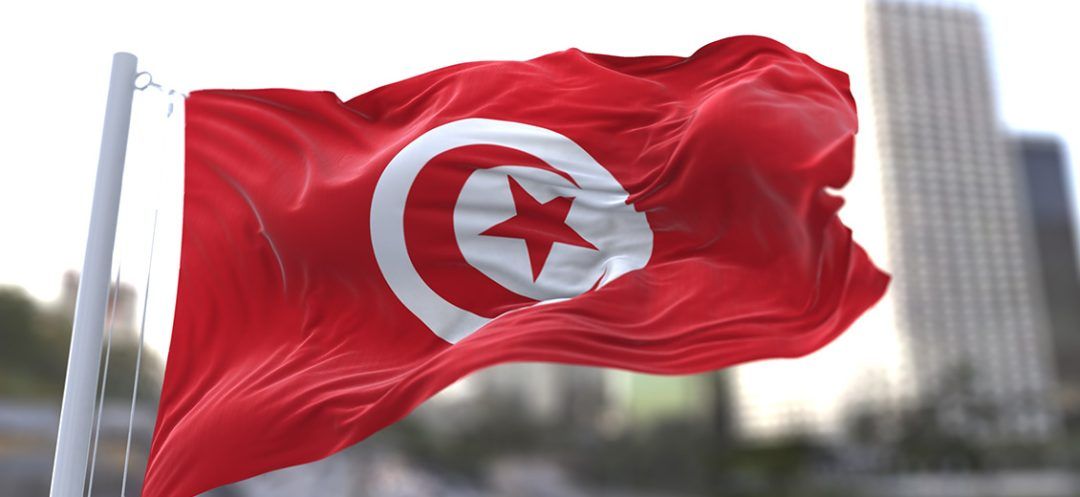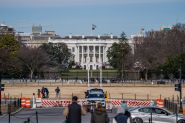- Home
- Middle East
- Tunisia: Final Stretch for a Locked-Up Presidential Election

The suspense in Tunisia has come to an end this Sunday, August 11: The Independent High Authority for Elections (ISIE), responsible for organizing and supervising elections, has released the final list of candidates for the presidential election, which will take place on October 6.
This will mark the fourth election since the 2011 overthrow of Zine el-Abidine Ben Ali’s regime following the Tunisian revolution, and it carries special significance. It will be the first election held under the new constitution, established by the current president, Kaïs Saied, in 2022.
In addition to the current president, who is running for a second term, two other candidates have had their applications approved: former MPs Zouhair Maghzaoui and Ayachi Zammel, both relatively low-profile figures. The other contenders, including President Saied’s main opponents, have been sidelined by various means. While they still have the option to appeal, their chances of success are slim.
Authoritarian Shift
This constitution was introduced in response to a specific context: the institutional power grab carried out by the current president in 2021. After winning the 2019 election, he was nicknamed “Robocop” by Tunisians due to the particularly rigid and ascetic image he projects in public.
If he secures a decisive victory with 72% of the vote, Kaïs Saied's position as an independent puts him on a collision course with the main parties in Parliament: Ennahda (Islamists) and Heart of Tunisia (secular).
The constitution in effect at the time – established in 2014 – had introduced a semi-presidential system. Like the president, the parliament was elected by direct popular vote. It elected the prime minister, who then chose the ministers and led the government. Consequently, its representatives had the same legitimacy as the president.
Frustrated by months of parliamentary deadlock that prevented him from implementing his agenda, the Tunisian president took decisive action. In July 2021, he declared a state of emergency, dismissed the Prime Minister and suspended Parliament with the support of the military. Two months later, he dissolved the Parliament.
From that point on, Kaïs Saied has had unrestricted control. He seized the opportunity to systematically dismantle all Tunisian democratic institutions. The goal was to remove any potential constraints that could limit his power.
In 2022, Saied implemented the current constitution. Tunisia transitioned from a semi-presidential system to a highly centralized presidential model, following a referendum that was boycotted by the opposition. With power increasingly concentrated in his office, severe restrictions on freedom of expression and the arrest of political opponents, the authoritarian shift is now firmly established. The latest development: the unexplained dismissal of Prime Minister Ahmed Hashani on Wednesday, August 7.
Rigorous Validation Criteria
This context heavily impacts potential presidential candidates. The ISIE, which is responsible for handling applications, has effectively lost its autonomy. Since 2022, its members have been directly appointed by the president.
The institute has since introduced particularly rigorous acceptance criteria. Aspiring candidates must first secure endorsements from ten MPs or 40 local officials, many of whom are closely aligned with Kaïs Saied. Alternatively, they can gather support from 10,000 voters, with a minimum of 500 signatures required per constituency. According to experts interviewed by AFP, this number is difficult to achieve.
While the incumbent president was able to submit his application without any difficulty, the process was far more challenging for the approximately one hundred candidates who announced their intention to run. In practice, only fourteen of them were able to pass this preliminary stage.
Abusive Legal Procedures
These candidates then encountered a new hurdle: obtaining their criminal record from the Ministry of the Interior before August 6, the deadline for submitting their application. Several candidates, including Mondher Zenaïdi, a leading challenger to Saied, reported that they were unable to get this important document.
Some are dealing with judicial procedures deemed as both expedited and abusive, aimed at disqualifying them. For some, like the rapper K2Rhym (real name Karim Gharbi), these procedures are based on allegations of electoral fraud, which he has categorically denied.
Others are affected by abusive decree-laws. In the case of former MP Abir Moussi, a text on cybercrime deemed excessively harsh by Amnesty International was invoked. The stated reason was that Moussi, a prominent critic of Saied, had criticized the electoral process and the ISIE.
While the two above-mentioned cases have not yet resulted in final convictions, others have not been as lucky. On Monday, August 5, five candidates were sentenced to prison terms, leading to lifetime disqualification from running for office: Abdellatif Mekki, Nizar Shaari, Adel Aldo, Mourad Messaoudi and Leila Hammami.
The Stakes of a Tightly Controlled Election
Nevertheless, the selected candidates will face significant challenges. First and foremost, they must convince Tunisians at the polls. The upcoming election will serve as a test for the legitimacy of the future president. None of the public consultations held since 2021 — including the referendum, the two rounds of legislative elections and the recent local elections — has managed to engage a substantial voter turnout.
The stakes extend beyond the election itself. For Saied’s opponents, the challenge will be to restore the functioning of democratic institutions. However, given the slim chances of candidates running against Kaïs Saied, this goal is unlikely to be realized.
In an interview with AFP, Tunisian analyst Hatem Nafti indicated that one of the candidates, Zouhair Maghzaoui, is even considered an “internal opponent.” Maghzaoui is more critical of the president on socio-economic issues than on political matters and had supported Saied’s power grab in 2021.
On the other hand, Kaïs Saied told journalists in Tunis on Monday, August 5, that his candidacy was part of a “war of liberation and self-determination” aimed at “establishing a new republic.” In other words, he plans to persist with his authoritarian agenda.
In any case, the winner will face a significant challenge: reviving the Tunisian economy, which is grappling with increasing difficulties. Unemployment at 15%, an emigration of young graduates, inflation exceeding 10%, soaring food prices and debt exceeding 80% of GDP are just a few of the issues at hand.
To address these challenges, the next president will need to negotiate an emergency loan with the International Monetary Fund. However, Saied opposes this plan, looking instead to Beijing as a potential source for rescuing the national economy.
Read more




Comments